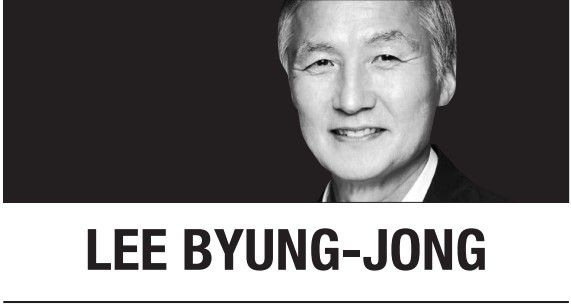 There was a time when South Korean scientists and engineers left their country in droves, seeking better research environments and more rewarding careers abroad—especially in the United States. For decades, this brain drain reflected Korea’s limited scientific infrastructure and rigid institutional culture. However, the tide is turning. South Korea has emerged as a formidable player in research and development, with its universities and companies becoming increasingly competitive. Now, many of these once-lost talents are returning home—and more may follow.
There was a time when South Korean scientists and engineers left their country in droves, seeking better research environments and more rewarding careers abroad—especially in the United States. For decades, this brain drain reflected Korea’s limited scientific infrastructure and rigid institutional culture. However, the tide is turning. South Korea has emerged as a formidable player in research and development, with its universities and companies becoming increasingly competitive. Now, many of these once-lost talents are returning home—and more may follow.
This trend could gain momentum due to policy shifts in the United States. The Trump administration’s research funding cuts and accusations of academic institutions being “liberal strongholds” have prompted many scholars to explore opportunities elsewhere. Consequently, countries worldwide are courting disillusioned American scientists and academics, offering better support, autonomy, and respect for their work.
Canada, for instance, has positioned itself as a sanctuary for displaced US-based academics, providing generous funding and robust institutional support. The University of Toronto has successfully recruited several leading researchers from American universities in recent years. Similar initiatives are underway in Europe. Aix-Marseille University in France recently offered 15 positions specifically targeting US-based scholars. Across the continent, institutions in the UK, Germany, and elsewhere are actively attracting American talent, particularly as diplomatic and trade tensions with the US continue to escalate.
China is another key contender in this global race for talent. Armed with extensive government funding, a vast research infrastructure, and a clear national strategy, China has aggressively courted global experts. Many China-born scientists and engineers, educated and employed in the US, are returning home, partly driven by growing anti-China sentiment in America. However, China’s ambitions face a critical limitation: a lack of academic freedom. For many international scholars, concerns about censorship and political interference make China a less appealing destination. Hong Kong once offered an alternative, but increasing control from Beijing has narrowed that window as well.
In this global context, South Korea stands out as a nation with both the motivation and the means to benefit from the US brain drain. Although still an emerging power in basic sciences, Korea has made impressive strides. While its universities may not yet rank among the global elite, their quality has improved dramatically. World-class research institutions like KAIST, Postech, and the Institute for Basic Science are helping to close the gap.
Historically, most researchers returning to Korea have been Korean nationals who studied or worked abroad. Foreign scholars remain a rarity in Korean academia, largely due to systemic challenges: relatively low compensation, a rigid academic culture, hierarchical management in companies, and significant language barriers. Many universities and research institutions still prioritize Korean-language communication and maintain promotion systems that can be opaque or overly rigid, discouraging interdisciplinary and creative work.
Despite these challenges, Korea has the potential to become a global R&D hub. It invests over 4 percent of its gross domestic product in R&D—among the highest rates worldwide—and the government has long recognized science and technology as essential to national development. Major conglomerates such as Samsung, SK, Hyundai, LG, and Posco pour enormous sums into their research centers and also support affiliated institutions like Postech. The government-run Institute for Basic Science, launched in 2011, collaborates with these players in key fields including biotechnology, AI, semiconductors, physics, robotics, and battery research.
These investments are already yielding results. The IBS has recruited world-class talent such as Kim Ki-moon, an expert in supramolecular chemistry, and Noh Do-young, a leader in advanced X-ray science—both of whom returned from prestigious US laboratories. At KAIST, Cho Kwang-hyun, a systems biology expert trained in the US, is spearheading cutting-edge research. Foreign talent, while still rare, is also beginning to arrive. A notable example is Rodney S. Ruoff, an American chemist renowned for his work in carbon materials, who joined IBS to lead nanomaterials research. He praised IBS for offering “unprecedented freedom” compared to US institutions.
Institutions across Korea are ramping up efforts to attract more of this caliber of talent. The Daegu Gyeongbuk Institute of Science and Technology, for example, is actively recruiting global doctoral-level researchers in AI as part of a joint initiative with the Ministry of Science and ICT. Its postdoctoral fellowship program offers highly competitive compensation—up to 90 million KRW (64,700 USD) annually—along with research funding and opportunities for industry collaboration. These moves aim not only to build domestic expertise but also to internationalize Korea’s research environment.
Ultimately, all these efforts toward brain gain aim to bolster Korea’s global standing in R&D, which still lags behind its industrial and manufacturing prowess. While Samsung and other Korean brands lead the global market, their long-term success hinges on innovation rooted in foundational science and technology.
However, a major domestic challenge persists: attracting young Korean talent to scientific fields. An increasing number of top students are opting for medical school over careers in engineering or science, seeking greater job stability and social prestige. For a country still awaiting its first Nobel Prize in science (it has only won in peace and literature), this trend is concerning. Yet, the momentum behind Korea’s brain gain strategy may help reverse this. By showcasing world-class research, international partnerships, and success stories of returnees and foreign scholars, Korea can inspire the next generation of homegrown scientists—and attract the best minds from around the world.
Lee Byung-jong
Lee Byung-jong is a former Seoul correspondent for Newsweek, The Associated Press, and Bloomberg News. He is a professor at the School of Global Service at Sookmyung Women’s University in Seoul. The views expressed here are the writer’s own. — Ed.


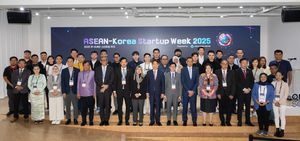
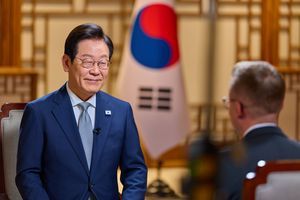


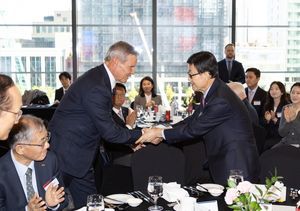
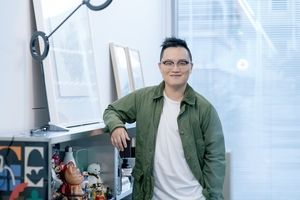


Most Commented